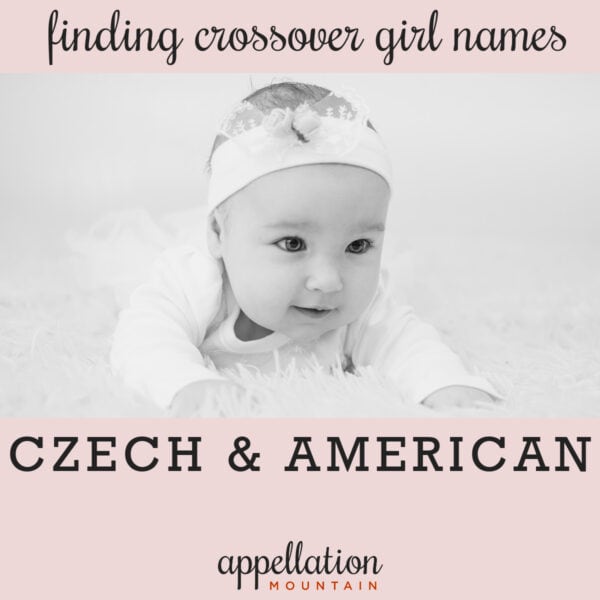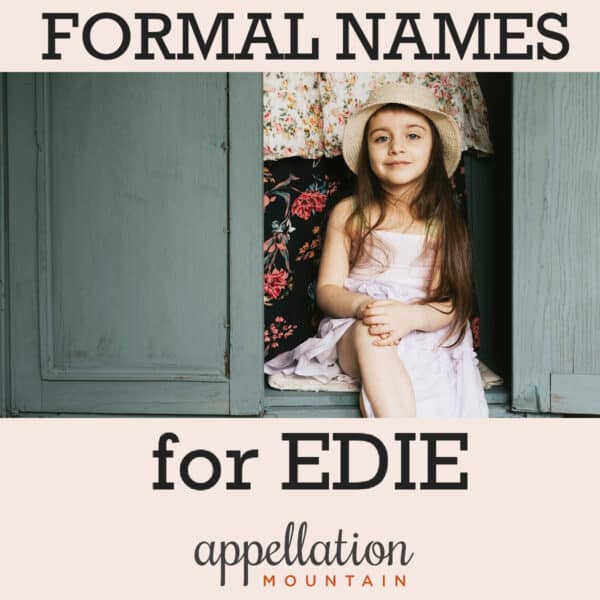For well over a century, Paul was a staple for baby boys born in the US. In fact, he’s quite common the world over. But the most common feminization, Paula, sounds rather dated in 2008.
And so we turn our attention to the Italianate version: Paulina. Thanks to Another for suggesting today’s Name of the Day.
Some parents grew up eating grandma’s lasagna, and others simply like the Roman Holiday style of girls’ names like Francesca (#477 in 2007), Arianna (#70) and Gabriela (#118). They fit the three-syllable, ends-in-a pattern of many current favorites from the past few decades, from Jessica and Amanda to Sophia and Samantha. As a group, the names are clearly feminine but not quite fussy, mostly because they can claim literary and historic precedents that span centuries.
There’s little mystery behind the appeal of Paul, an early convert to Christianity credited with writing much of the New Testament. (He was born Saul and adopted his new identity on conversion.) Paulus is an old Roman family name derived from paullus, which means little, and is the root for words like pauper and paucity. However, given the life of the saint, the word has taken on a slightly different cast – humble.
Paul inspired plenty of namesakes. Six popes bore the name, and a host of early saints, too. Between 300 and 800, we find at least one Saint Paula and two Saints Paulinus, showing that it was common throughout Christian Europe in both feminine and variant forms. Despite his long use, Paul fell out of favor in the Middle Ages, and hibernated until the Reformation. Colonial America had its share of Pauls – think Revere – and by the 19th century, he was again one of the most common English-language choices for boys. From 1893 through 1973, he was a Top 25 pick in the US. Paul remained in the Top 100 until 1999, but today stands at the relatively underused rank of #148. (He’s out of the Top 100 in the UK, too.)
In 1963, the single “Hey Paula,” by, yes, a duo calling themselves Paul and Paula, hit #1. Paula was long established as a Top 100 name, a rank she held from 1943 until 1973. She’s been ranked in the Top 1000 every year, but today stands at a relatively obscure #651. It’s hard to hear the name without thinking of that duet from a gentler time, and perhaps that’s why the name feels more than a bit dated.
The French-tinged Pauline has not been ranked in the Top 1000 since 1997, but she, too, had her day in the sun, placing in the Top 100 from 1880 to 1938. Today the “een” ending sounds too much like the out-of-fashion Maureen-Doreen-Darlene set for revival.
But a Czech-born supermodel brought a relatively obscure feminization of Paul to everyone’s attention back in 1998.
Paulina wasn’t new, of course. It was the name worn by Roman Emperor Hadrian’s mother, sister and niece and also by a long-suffering wife of the mad Emperor Caligula. And the name has been in steady use in Spain, Italy and Poland throughout modern history – Saint Paulina was born in Italy in the 1860s.
Back to that famous face. Paulina Porizkova signed a record-setting contract to be the spokesperson for Estee Lauder Cosmetics in 1998. After years of obscurity, the name re-entered the Top 1000 that same year and now stands at #492.
Today, Paulina is an interesting possibility. She sparkles with a certain amount of supermodel glam, pairs well with Isabella and Olivia and has the edgy flair of ancient names like Aurelia and Octavia. Unlike Paola, another Euro-import, she’s simple to say and spell in English.
And while the nickname Paulie conjures up a mobster, à la The Soprano’s Paulie Walnuts, there’s always Polly. Originally one of the endless string of pet names for Mary, today it seems like a sweet appellation for a girl. As a bonus, it’s instantly familiar but has not been ranked in the Top 1000 given names since 1977.
Of course, Paulina is also a fabulous way to honor an ancestral Paul, a name that’s hanging on plenty of our family trees.
For parents seeking a choice that is both familiar and underused, elegant and easy-to-wear, Paulina certainly merits consideration.




Paulina is such a nice name and I love the nickname Lina. My best friend in 5th grade was Paulina. She’s from Poland too and she was a great friend to me so the name really grew on me over the years. I’m adding it to my favorites list.
I’ll admit I’m biased. My son’s godmother is Paulina. She was born in Poland, so it’s not nearly as uncommon a name as it might be in the US. It’s tough for me to think of the name without thinking about my friend.
But now that others mention it, I *do* find the “double diminutive” quality of the name odd. Still, I can’t help but find her appealing.
I also associate the name with meaning small but becauseof the -line/-lina ending but as name meanings don’t bother me (unless they’re awful) this isn’t an issue. What I’m not so keen on is the overtly male’ beginning of the name and god forbid(!) the possibility of being nicknamed that!
On the flip side, I rather like the what the previous poster says about a little Paulina stanidng out amongst the crowd. So, to conclude: I haven’t a clue what I think of Paulina, I think I need to go away and mull her over…
Not caring about name meanings, I can say I like it – the only association I have is with Ms Porizkova who is beautiful, so for me, it’s a solid choice. Little Paulina will be nearly unique, standing proud among all the multitudes of Madisons and Isabellas.
My immediate association is Antonio Canova’s sculpture and immortalization of Paolina Borghese. I love this name, but my only qualm is that it is a diminutive of a name that means small, and in effect, means “little small.”
The Paul names bother me. I don’t like their meaning and I’ve known too many nutty (not in a good way) Pauls for me to ever like it again. Paola is the only form I like, I love saying it aloud, so lush and round but I do know it’s not an easy one for a Yank to wear.
Paulina bugs me twice over; her root, Paul means small and my brain assocatiates -ina with nina, in a “small one” sense. So Paulina in my brain is small, small. I do agree it’s pretty and fits the popular three syllable, ends in -a pattern so popular for girls. And it’s definitely nderused and would stand out nicely among the Sophia, Amelia, Isabella girls already out there. So Paulina’s an awesome choice for a girl, just not for me.